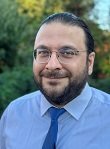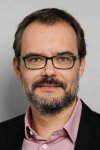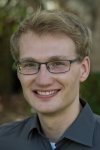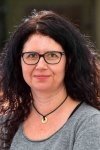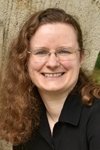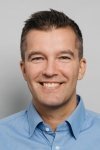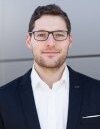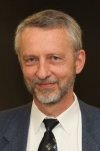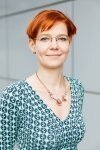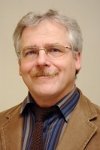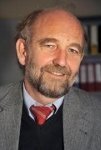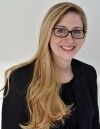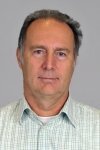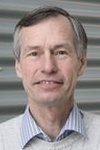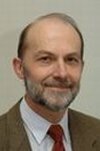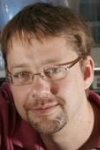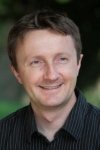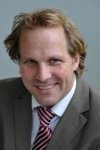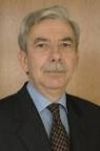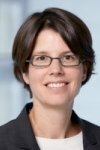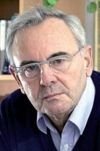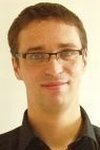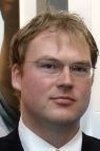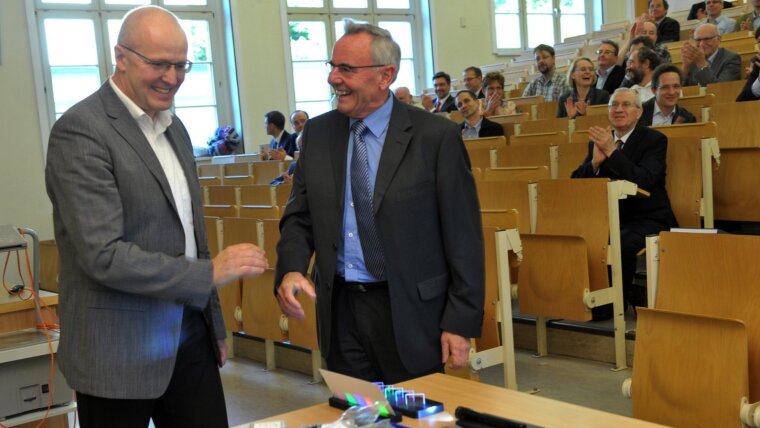
Prof. Dr. Sina SARAVI (until 2025)
Prof. Dr. Sina SARAVI
Image: Raoofeh RostamiDr. Sina Saravi is actually a graduate of our local M.Sc. Photonics program. After his PhD in Jena, he led a research group on Nonlinear Neuromorphic and Quantum Systems funded by the Nexus prgram of the Carl Zeiss Foundation. The Saravi group in Jena focused on the fundamental research and experimental development of all-optical diffractive neural networks, specially by utilizing the unique capabilities of nanostructured metasurfaces as an implementation platform. The target system, namely a Diffractive Deep Neural Network (D^2NN), is of the type of an optical computer, made from consecutive layers of diffractive optical elements (such as metasurfaces), in an architecture similar to a deep neural network. Such a neuromorphic photonic system can be used in machine-vision applications, which specially require extremely fast response times and low energy consumption, which are two of the main current challenges facing the conventional implementation of deep neural networks using electronic systems. Dr. Saravi, moreover, has shown an outstanding commitment in teaching quantum photonics at the Master level and to build the M.Sc. Quantum Science & Technology program. In 2025, he was appointed full professor at the University of Paderborn, and certainly remains a prime collaborator of many ACP colleagues.
Prof. Dr. Benjamin DIETZEK-IVANŠIC (until 2025)
Benjamin DIETZEK-IVANSIC.
Image: Sven Döring (Leibniz-IPHT)Dr. Benjamin Dietzek-Ivanšic is professor of Physical Chemistry, was head of the research department Functional Interfaces and Deputy Scientific Director at the Leibniz Institute of Photonic Technology. He has been leading several large EU and DFG consortia, among them, the SFB/TRR 234 CATALIGHT, the GRK 3014 PhInt and the ITN LOGICLAB. Prof. Dietzek-Ivanšic’s research in the field of molecular photonics focused on understanding the relationship between structure, photoinduced dynamics and the function of molecules and molecular materials, including electron transfer reactions in molecules and in molecule-bulk interfaces or photoinduced processes in drugs for photodynamic therapy and in molecular sensors. In 2025, Dr. Dietzek-Ivanšic was appointed as Scientific Director and Executive Board Member at the Leibniz Institute of Surface Engineering (Leibniz IOM) as well as a professor in Applied Physics at the University of Leipzig. Several bonds with Jena, particularly with the Leibniz Institute of Photonic Technology, will surely remain active.
Prof. Dr. Tobias VOGL (until 2023)
Dr. Tobias Vogl.
Image: Private.Tobias Vogl has been a junior group leader at ACP, with his major affiliation to the Institute of Applied Physics since 2020. Since then, the Jena-based Vogl group researched into Integrated Quantum Systems. Within their work, the group explored light-matter-interaction and quantum properties of 2D materials. Fluorescent point-like defects in hexagonal boron nitride (hBN) have shown to emit pure single photons with a high luminosity at room temperature. The group has given some seminal contributions how to enhance these quantum emitters by coupling them to resonant optical systems and integrated photonics. Further research interests included quantum communication, quantum computation, interferometry, as well as quantum sensing and super-resolution nanoscopy. In 2023, Tobias Vogl received and accepted a call at the Technical University Munich as a full professor. The whole ACP community congratulates to this great personal achievemant and will reach out to keep strong scientific links with the Vogl group in Munich.
Prof. Dr. Silvana BOTTI (until 2023)
Silvana BOTTI
Image: PrivateProfessor Silvana Botti was Chair of Theoretical Solid State Physics at the Friedrich Schiller University Jena from 2015 until 2023. Her research activities focus on the computational design of new technological materials, as well as on the development and application of many-body treatments for theoretical spectroscopy. During her time in Jena, Silvana Botti was also very committed to education activities. She tought advanced theory courses for undergraduate and Master’s degree students of Physics and for four years, she served as Dean of Studies of the Faculty of Physics and Astronomy. In 2023, Silvana Botti received a call from the University of Bochum, where she is now a full professor.
Dr. Christin DAVID (until 2023)
Dr. Christin David.
Image: PrivateDr. Christin David has led a junior research group in theoretical nanophotonics with focus on the optical response of hybrid nanostructures at the Institute of Condensed Matter Theory and Optics from 2019 until 2023. In her group, she investigated optical properties of nanostructured systems from the nanometer to the device scale. She was (and still is) also a principal investigator of the DFG Collaborative Research Center (CRC) 1375 NOA on Nonlinear Optics down to Atomic scales. Previously, Dr. David has been working as a postdoctoral DFG fellow at DTU Fotonik, Denmark, and a Marie-Curie fellow at IMDEA Nanociencia, Spain. In 2023, Christin David received a call from the University of Applied Sciences Landshut, where she now holds permanent position as a research group leader.
Prof. Dr. Torsten FROSCH (until 2023)
Torsten FROSCH
Image: Sven DöringDr. Torsten Frosch served as head of the Fiber Spectroscopic Sensing Group at the Leibniz Institute of Photonic Technology and the Institute for Physical Chemistry at the Friedrich Schiller University Jena for many years. He was a member of the DFG Collaborative Research Center (CRC) 1076 AquaDiva, the DFG Research Unit DASIM, and the International Max Planck Research School for Global Biogeochemical Cycles in Jena. The research interests of the Frosch group were concerned with innovative, miniaturized, optical fibers and cavities for chemical selective and highly sensitive spectroscopic analysis in environmental, pharmaceutical and biomedical areas. In particular, Cavity Enhanced and Fiber Enhanced Raman Spectroscopy (CERS and FERS) provided unique capabilities for chemo- and bioanalysis such as applicability in hydrous/biological environment as well as label-free, non-destructive, and simultaneous analysis and quantification of several analytes. In 2023, Torsten Frosch received a call from the Technical University of Darmstadt, where he is now a full professor.
Prof. Dr. Markus GRÄFE (until 2022)
Dr. Markus Gräfe
Image: Anne Günther (University of Jena)Dr. Markus Gräfe finished his PhD in the field of integrated quantum photonics at the Institute of Applied Physics in Jena in 2017. For his outstanding contributions in the field of photonic quantum walks he was awarded with the Applied Photonics Award (STIFT Förderpreis). He was appointed a group leader at the Fraunhofer Institute for Applied Optics and Precision Engineering IOF for »Quantum-Enhanced Imaging« and related quantum photonics areas, and gave many well-noted contributions in the fields of quantum-enhanced imaging, microscopy with quantum light and the development of single-photon sources. In October 2022, Markus Gräfe was appointed a full professor at the Technical University of Darmstadt.
Prof. em. Dr. Herbert GROSS (until 2022)
Prof. Dr. Herbert Gross
Image: PrivateThe research group Optical System Design was appointed with Prof. Herbert Gross in 2012. Before taking on this professorship, Herbert Gross had a long-term experience as an industrial researcher, particularly at ZEISS. He was and still is recognized as one of the world's largest experts in the theory of optical systems. For more than 10 years, he was outstandingly engaged in the teaching acitities of the Abbe School of Photonics, coining more than 100 students in this very applied area of optics. Particularly, he was giving courses at all levels in technical optics, design and correction of systems, aberration theory and microscopy, or lens design with optical design software. Due to the practical approach of his teaching, he also held numerous seminars and courses for professionals in the field of optical design. Furthermore, his vast research portfolio delt with optical systems, their design, modelling, simulation and performance evaluation, including, e.g., modelling of coherent and partial coherent light propagation, computational methods for illumination,optimization methods of optical systems, initial trials and structure of systems,performance evaluation of non-symmetrical and free form surface optical systems, phase retrieval for metrology, phase imaging, microscopy, image formation with enhanced contrast and resolution or calculation of scattering of light in tissue.
With the retirement of Herbert Gross in 2021, the appointment procedure for finding a successor in optical system design is currently ongoing.
Prof. Dr. Maria WÄCHTLER (until 2022)
Maria WÄCHTLER
Image: PrivateMaria Wächtler has been a group leader at ACP, with her major affiliation to the Leibniz Institute of Photonic Technology Jena. In 2022, she received and accepted a call at the Technical University of Kaiserslautern as a full professor. The postgraduate chemist has been working very successfully at ACP and Leibniz IPHT since 2009, first as a PhD student and later as a scientist. Since 2015 she has headed the Ultrafast Spectroscopy Working Group as well as the Quantum Confined Nanostructures Working Group at the institute since 2020. Together with her team, she cently conducted research on the fundamentals of light-driven processes in semiconductor nanoparticles using time-resolved spectroscopic methods. Since October 2022, Maria now holds a professorship in physical chemistry in the Department of Chemistry and will help shape research and teaching at the university in Rhineland-Palatinate.The whole ACP community wishes her all the best and much success for her further tasks in Kaiserslautern.
Prof. em. Dr. Andreas WIPF (until 2021)
Prof. Dr. Andreas Wipf
Image: PrivateAndreas Wipf had been an esteemed member, researcher and teacher at the Faculty of Physics and Astronomoy and at the Institute of Theoretical Physics in Jena. In his long and meritful scientific career, he focused on the theoretical description of systems with many or infinitely many degrees of freedom under extreme conditions - in very strong electromagnetic and gravitational fields, at high temperatures and at high densities. The Wipf group gave seminal contributions to the understanding and calculation of physical effects like Hawking radiation in strong gravitational fields, dispersive and absorptive vacuum effects in quantized electrodynamics, phase transitions in the early universe and the phase diagram of strongly coupled gauge theories, and in particular of quantum chromodynamics. Andreas Wipf was particularly committed to teaching. For decades, he engaged strongly both in undergraduate and graduate physics education including the major theoretical courses in Classical and Quantum Mechanics, Electrodynamics, Thermodynamics and Statistical Physics as well as advanced courses concerning Quantum Field Theory, Path Integrals, Supersymmetry and Symmetries in Physics. He was also the spokesperson of the DFG-funded research training group "Quantum and Gravitational Fields" with a special commitment to PhD education. Andreas Wipf was awarded the status of a so-called senior professor of the Friedrich Schiller University Jena in early 2021.
Prof. em Dr. Christian RÜSSEL (until 2018)
Prof. Dr. Christian Rüssel
Image: PrivateChristian Rüssel was chair for glass chemistry at the Friedrich Schiller University and at the Otto Schott Institute of Materials Research for the majority of his long academic life. His primary research interests were devoted to various technical glass types and glass-ceramics, their preparation, structure and properties, and liquid state. His group also explored fundamental studies on glass rheology, glass crystallization, phase separation and thermal behaviour. After a long and meritful academic career, Christian Rüssel became Professor Emeritus in 2018. He published more than 300 peer-revied papers and, at this time, had a h-index of 28. His legacy at the Otto Schott Institute of Materials Research is taken over by the new glass chemistry chairholder and ACP principal scientist Lothar Wondraczek.
Prof. Dr. Birgitta BERNHADT-SCHULTZE (until 2017)
Prof. Dr. Birgitta Bernhardt-Schultze.
Image: PrivateThe research group for ultraviolet dual comb spectroscopy led by the former Junioer Professor Birgitta Bernhardt-Schultze was funded by the Carl Zeiss Foundation, and had been established at the Abbe Center of Photonics in 2017. The group was devoted to absorption spectroscopy in the (extreme) ultraviolet (XUV) region with ultrahigh spectral resolution. Dual comb spectroscopy is an innovative form of traditional Fourier transform spectroscopy (FTS). The combination of two short pulse lasers with slightly different repetition rates abandons a moving mirror, so far being the characteristic but also limiting component of FTS as the most abundant technique for broadband high-resolution spectroscopy. In this way, one million times shorter measurement times with simultaneously unprecedented spectral resolution become possible. Due to the versatility of the method, a variety of dual comb spectrometers have been realized recently in the THz, visible and infrared spectral region. In Jena, the Bernhardt-Schultze group was working on the world's first dual comb spectrometer in the (X)UV between 4 and 60 eV via high harmonic generation. In 2019, Birgitta Bernhardt-Schultze was appointed as an associate professor at the Technical University GrazExternal link in Austria where she is now building her own research group. We are glad about this achievement as it demonstrates once again that ACP's junior scientists are highly internationally competitive.
Dr. Ernst-Bernhard KLEY (until 2017)
Dr. Ernst-Bernhard Kley
Image: PrivateE.-Bernhard Kley was the head of the Microoptics and Micostructure Technology Group at the Institute of Applied Physics for more than two decades. He has spent his whole scientific life at the Beutenberg Campus and retired after a distinguished career in student suprevision and research in 2017, accounting more than 300 scientific papers in peer-reviewed journals, 61 patents and the supervision of more than 300 theses. Still, he is a frequent guest at the institute, where his competence, enormous creativity and advice is always highly appreciated. The Kley research group concentrated fundamentally on function and design of micro- and nano-optical elements as well as applications and technology developments for microstructuring. Since 2018, the research group Microstructure Technology is headed by ACP principal scientist Uwe Zeitner.
Prof. em. Dr. Hartmut BARTELT (until 2017)
Prof. em. Dr. Hartmut Bartelt
Image: PrivateProf. Hartmut Bartelt had been working at the Leibniz Institute of Photonic Technology (IPHT) for 23 years and became a Professor Emeritus in 2017. The former research of his fiber optics group was focused on the propagation properties of fiber-guided light as well as its efficient and flexible control. Fiber modules and systems for a broad range of applications were being researched as well. Hartmut Bartelt's research focus combined the scientific skills in the modeling, characterization, and application of fiber-optical components and systems with know-how in materials and technology required for the manufacture of optical specialty fibers used in a wide parameter range. The most important applications made under his guidance were material processing using novel light sources as well as fiber-optical measurement and sensor technology. In particular, fiber-optical solutions delivered an important bridging function to topics in life and environmental sciences by biological and chemical sensor technology as well as in process measurement technology. The succeeding fiber sensors group at the Leibniz-IPHT Jena is headed by ACP principal scientist Markus Schmidt.
link to the press release on the vitae of Hartmut Bartelt issued by the Leibniz IPHTExternal link
Prof. em. Dr. Richard KOWARSCHIK (until 2016)
Prof. Dr. em. Richard Kowarschik
Image: PrivateFor many years, Richard Kowarschik was the director of the former Institute of Applied Optics at the Friedrich Schiller University. Prof. Kowarschik retired after a distinguished career in teaching, student advising and research in 2016. The primary research interests of Richard Kowarschik as Chair of Coherent Optics at the Institute of Applied Optics were the physics of the interaction of optical wave fields with media and boundary surfaces and cover optical measuring techniques, optical information storage and processing, and diffractive optical elements. His work with regard to optical measuring techniques had, following a long tradition, a strongly application-oriented character. It included optical methods for the measurement of 3D surface profiles and deformations (structured light, digital holography, holographic interferometry), wavefront sensing and adaptive optics, the analysis of laser modes, and microscopy with interferometric techniques, optical information storage and processing include the investigation of real-time storage materials (photorefractive crystals, photo polymers) and light-induced processes (wave mixing, spatial solitons) within these materials. A third research field of Richard Kowarschik concerned the synthesis, analysis and transformation of laser modes and the laser beam forming by means of diffractive optical elements (DOEs).
Prof. Dr. Alexander SZAMEIT (until 2016)
Prof. Dr. Alexander Szameit
Image: PrivateAlexander Szameit was a Junior Professor at ACP until 2016, where he established a flourishing research group aimed at the fundamental understanding of the propagation of optical waves in different systems whose structure and material parameter are based on the different macroscopic manifestations of carbon. After an incredibly successful junior professorship rich of innovations, high-impact publications, distinctions and awards, Alexander Szameit was appointed as a full professor at the University of Rostock. There, being Chair for Experimental Solid-State Optics, Alexander Szameit is head of a group exploring the fundamental theoretical and experimental understanding of wave-physical phenomena in periodic and functionalized media. The basis of their investigations is the evolution of classical optical wave packets and entangled single photons in three-dimensional systems of coupled waveguides, which were inscribed in optical glass chips using ultrashort laser pulses - a technique adapted from the work done in Jena. The research directions of the Szameit group include, among others, the emulation of solid-state phenomena in optical systems, the emulation of relativistic physics, topological photonics, and integrated quantum optics.
link to the Szameit group in RostockExternal link
PD. Dr. Alexander SCHILLER (until 2016)
PD Dr. Alexander Schiller
Image: PrivateAlexander Schiller was a DFG Heisenberg fellow and junior professor for inorganic chemistry at the Friedrich Schiller University Jena until 2016.He His research group "Biomimetic Signal Transduction" incorporated methods from the areas of materials- and bio-inorganic photo chemistry and supra-molecular analytical chemistry. Research thrusts included photo-inducible nitric oxide (NO) and carbon mon-oxide (CO)-releasing molecules and materials, molecular probes for bioanalytes in water and "molecular logic" - computing using sensors and light. Since 2016, Dr. Schiller is a full-time trainer, certified coach and facilitator: teaching advanced research skills, such as communication in science, team building and leading competences and didactics and methodology in university teaching. He is a member in the „Bundesverband für Training, Beratung und Coaching“. Since 2018, Dr. Schiller is a „Certified Advanced Coach“ by the The Thiagi Group, Inc.
link to the Schiller & Mertens coaching servicesExternal link
Prof. Dr. Alexander HEISTERKAMP (until 2014)
Prof. Dr. Alexander Heisterkamp
Image: Jan-Peter Kasper (University of Jena)The ACP group of Prof. Alexander Heisterkamp has been performing research in the field of optics with special focus on medical applications. In their Jena-based research, the group has mainly studied the interaction and application of laser, especially fs-laser pulses, at the cellular level in an interdisciplinary approach, including, for example, cellular manipulation using ps- and fs-laser pulses together with nanotechnology, such as goldnanoparticles. Further studies covered laser-based imaging and ablation with multiphoton processes as well as laser transfection by fs-laser and optical trapping and tweezers. In 2014, Alexander Heisterkamp left Jena and ACP for accepting a professorship of Biomedical Optics at the Leibniz University HannoverExternal link.
Prof. em. Dr. Friedhelm BECHSTEDT (until 2014)
Prof. em. Friedhelm Bechstedt.
Image: PrivateFor almost three decades, Friedhelm Bechstedt was a respectable colleague, scientist and director of the Institute of Condensed Matter Theory and Optics (IFTO) at the Friedrich Schiller University. Prof. Bechstedt retired in 2014 after a distinguished acacemic career with seminal contributions to the field of theoretical spectroscopy. The group was concerned with the development of many-body descriptions and density functional theory approaches and their implementation in codes. Many of these activities were embedded in European Networks, where the vital parts of the Jena group concerned the inclusion of excitonic and spin effects. The Bechstedt group greatly contributed to the inclusion of dynamical screening and spin effects in the theory of quasiparticle excitations and excitons, especially in their description in optical spectra. Many activities were directed at computing features such as Wannier-Mott excitons in spectra of the complex systems. A time-evolution method has been developed to calculate spectra which include excitonic effects for systems consisting of up to about 100 atoms per supercell. To predict band structures of wide-gap systems, Bechstedt et al. demonstrated that the electronic structures resulting from hybrid exchange-correlation functionals represent reasonable starting points for solving the quasiparticle equation which even include spin-orbit interaction. Still today, Friedrich Bechstedt is holding an Emeritus Chair at his former institute.
Prof. Dr. Rachel GRANGE (until 2014)
Prof. Dr. Rachel GRANGE
Image: ETH ZurichRachel Grange received her PhD at the Swiss Federal Institute of Technology (ETH) in Zurich in the field of laser physics. During her postdoc at the École Polytechnique Fédérale de Lausanne (EPFL), Dr. Grange was involved in cross-disciplinary projects within the Institutes of Bioengineering and Microengineering for developing nonlinear bioimaging techniques. In 2011, she was appointed as Group Leader of the Multiphoton Nanomaterials Group at ACP. In their Jena-based work, the group encompassed several aspects starting from the synthesis of core-shell nanoparticles and nanowires, the investigation of their optical properties, the development of advanced nonlinear microscopy setup for enlarging the imaging toolbox as well as the applications to biology. Rachel Grange has been appointed as a Professor of Optical Nanomaterials at the ETH ZurichExternal link in 2014.
Prof. em. Dr. Falk LEDERER (until 2013)
Prof. em. Dr. Falk Lederer
Image: PrivateFalk Lederer was the head of the Solid State Optics Group at the Institute of Condensed Matter Theory and Solid State Optics de and served as spokesman of the Abbe School of Photonics since 2008. From the first day of ACP's foundation in 2010 abd until September 2013, he was an esteemed member of ACP's board of directors. Prof. Lederer retired after a distinguished career in teaching, student advising and research in 2013. The primary research interests of Falk Lederer were devoted to the intrinsic localization of light in nonlinear media, to ultrafast all-optical processes, to discrete optics and to the control of light in engineered photonic materials. His group is well acknowledged in the scientific community for several seminal papers on novel nonlinear localized structures and discrete optical effects. He authored and co-authored more than 400 scientific papers in peer-reviewed journals and has a h-factor higher than 50. Beside his strong commitment in the education and training of students and young-career scientists, one of Falk Lederer's biggest achievements was to take part in the acquisition of the first Collaborative Research Center (SFB), on "Physics and Chemistry of Optical Films" from the German Research Foundation (DFG) at the Neue Länder in 1993. He was the initiator and contributed essentially to the DFG Innovation Center "Optical Information Processing". Prof. Lederer provided essential input to the establishment and to the work in the DFG research unit "Nonlinear spatio-temporal dynamics in dissipative and discrete optical systems". He was a member of the DFG Priority Programs "Optical Signal Processing", "Optical Transmission Networks" and "Photonic Crystals". Until 2013, he has been the spokesman of the Priority Research Area Optics & Photonics at the Friedrich-Schiller-Universität Jena. On the European scale, Falk Lederer was the coordinator of the first FET Open project ROSA on ultrafast optical signal processing. He is a Fellow of the Optical Society of America and provided service to this organization as a Topical Editor of Optics Letters from 2008-2013 and as General Chair and Program Chair of CLEO and various Topical Meetings.
Prof. Dr. Carsten ROCKSTUHL (until 2013)
Prof. Carsten Rockstuhl / KIT.
Image: Private.Carsten Rockstuhl was Junior Professor and head of the Theoretical Nanooptics Group at the Center for Innovation Competence Ultra Optics and at the Institute of Condensed Matter Theory and Solid State Optics de until December 2013. Moreover, he served as the local coordinator for the Erasmus Mundus Master Degree Program "OpSciTech - Optics in Science and Technology". During eight years of intense research and teaching activities in Jena, the former ACP member authored more than 150 peer-reviewed publications in nanooptics and contributed with several seminal papers to establish this research field sustainably in Jena. Carsten Rockstuhl's work is and was distinguished by close interactions with a large number of experimental and theoretical groups that work in the same and adjacent scientific areas. In 2014, Carsten Rockstuhl was appointed as full professor of Theoretical Solid State Physics at the Institute of Theoretical Solid State PhysicsExternal link at the Karlsruhe Institute of Technology (KIT)External link. With his newly founded group in Karlsruhe and still strong bonds to the ACP Jena, he continuous to explore the possibilities to control the properties of light by means ofmicro- and nanostructured materials. His scientific findings contribute to the basic understanding of light-matter interaction and to enabling applications previously inaccessible. Prof. Rockstuhl's Theoretical Photonics Group relies on a large variety of different numerical and theoretical tools and mainly focuses on the subjects plasmonics, optical nanoantennas, metamaterials, photon management in solar cells, nonlinear and quantum optics.
Prof. Dr. Stefan SKUPIN (until 2013)
Prof. Dr. Stefan Skupin
Image: PrivateStefan Skupin was holding a Carl Zeiss endowed Junior Professorship at ACP from 2009 until 2013. He was the head of a junior research group for Computational Photonics at the Institute of Condensed Matter Theory and Solid State Optics de. At the same time, Stefan Skupin was affiliated with the Max Planck Institute for the Physics of Complex SystemsExternal link in Dresden. During his time in Jena and with the ACP, he showed an outstanding engagement in teaching B.Sc. and M.Sc. students, including lecturing Fundamentals of Modern Optics, Structure of Matter, Computational Physics, Nonlinear Optics and Waveguide Theory. By the end of 2013, Stefan Skupin was appointed as Professor of Physics at the Université Bordeaux 1External link. The main focus of his ongoing research is the interaction of high-intensity, ultra-short laser pulses with matter, and, in particular, its numerical modeling. His research thrusts include
- Novel light sources from high-intensity laser matter interaction,
- Nonlinear ultra-short pulse generation and propagation,
- Pattern formation, solitons, vortices and topological excitations,
- Bose-Einstein condensation phenomena,
- Laser-based charged particle acceleration and relativistic optics, and
- Large-scale parallel computing, hardware accelerators.
